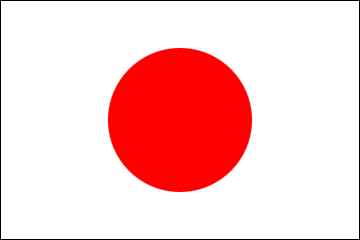Working Holiday Visa (Applications for 2026 are available)
Background
With Working Holiday visa, Dutch citizens need not obtain further permission to engage in remunerative activities while in Japan, provided these activities do not contravene Japanese laws and regulations, especially those regulating businesses offering food and entertainment as well as any other regulations in force which affect public order and good morals.
Important note: The Working Holiday visa is not appropriate for those wishing to enter Japan to engage in full-time employment and internship activities or to enroll in academic institutions. Applicants who primarily intend to work cannot apply for this visa.
Applicant Prerequisites
- nationals of the Netherlands who are resident in the Netherlands at the time of the application for the said visa
- intend primarily to holiday in Japan for a period of up to one (1) year from the date of entry
- aged between eighteen (18) and thirty (30) years both inclusive at the time of application for the said visa
- not accompanied by dependents unless those dependents are entitled to enter Japan on their own grounds
- possess a valid passport of the Netherlands and a return travel ticket or sufficient funds to purchase such a ticket
- possess reasonable funds for their maintenance during the period of initial stay in Japan
- intend to leave Japan at the end of their stay
- have not previously been issued the said visa
- have good health, adequate medical insurance, a sound background and no criminal record
- intend to comply with the laws and regulations in force in Japan
during their stay in Japan
Application Procedure
* Additional documents or interviews may be requested to verify the eligibility of an applicant for the visa whenever the Embassy deems necessary.
* Please do not staple any part of your application or documents.
Processing time and other visa information
- The normal processing time is 5 working days if all the requirements are met. It may take longer if additional documents are required for further assessment.
- Visas are valid for three months from the date of issue. An applicant therefore needs to enter Japan within three months of the visa being issued.
- With the working holiday visa, you are allowed to stay in Japan for a period of one year from the date of initial entry into Japan. It is not possible to change your residency status or extend the period of stay.
- The participants of the Working Holiday Program are issued a residence card upon initially entering Japan at Narita, Haneda, Kansai or Chubu Airports. In case of arrival at other airports and seaports, a residence card will be mailed to the place of residence from the municipal office.
- The Working Holiday visa is free of charge. Please note that this is subject to change every year.
Other Information
Working Holiday visas are for single entry. Therefore, if the Working Holiday visa holder has to leave Japan for any reason and thereafter wishes to return to Japan, they must obtain a Special Re-entry Permit at the airport they depart. For further information, please follow the link below:
➢ Special Re-entry Permit
The participants of the Working Holiday Program are required to visit the municipal office of the municipality where they are living, bringing their resident card, and to notify their place of residence within 14 days of finding a place to settle down. (Hotels are not regarded as a place of residence in general).
1. Japan has a public health insurance system, and everyone who lives in Japan must enroll in some form of public health insurance. The National Health Insurance program is one form of public health insurance, and the program is operated at the municipal level.
2. When a Working Holiday participant notifies his/her place of residence, he/she should take necessary procedures for joining in the National Health Insurance at the municipal office. (If you live in a place which is not regarded as a place of residence by the municipal office, such as a hotel, it is not possible to join the National Health Insurance.).
3. The National Health Insurance fee is about 3500 yen per month in general (the insurance fee may vary at each municipality). If an insured person shows his/her health insurance certificate at medical institutions before receiving medical treatment, he/she will then in general only need to bear 30% of the medical expenses.
4. The National Health Insurance does not cover death, residual disability, damage remedy, urgent medical return, etc. In case a Working Holiday participant requests the above-mentioned compensation which the National Health Insurance does not cover, it is necessary for him/her personally to take another insurance offered by an insurance company (i.e. overseas travel insurance).
Job Centers (Hello Work), and the Employment Service Centers for Foreigners in Tokyo, Osaka and Nagoya provide assistance to job-seekers in Japan. The above Employment Service Centers for Foreigners and some Job Centers are able to provide assistance in English. For further information, please follow the link below:
➢ Employment Policy for Foreign Workers
Important note: The participants of the Working Holiday Program will not be able to engage in activities which are considered to go against the policies of the Working Holiday Program. It is strictly prohibited to work at establishments that affect public morals such as adult entertainment and gambling establishments.
 」.
」.